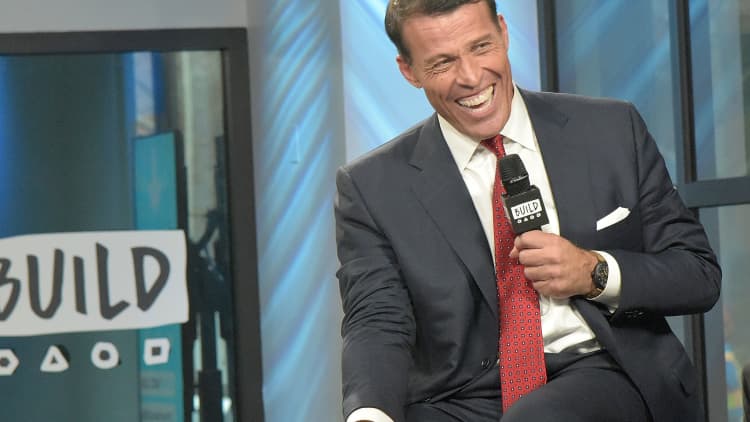We've been told again and again that it's much easier to learn a new language as a child than it is as an adult.
That idea is also true when it comes to financial literacy. Yet a good chunk of parents fail to set their kids up for financial success. A 2018 study from the University of Illinois at Urbana-Champaign found that 36% of young adults are "financially at risk."
Researchers sampled a pool of 3,050 adults (ages 18 and up) to access their financial aptitude, including their understanding of basic economic concepts (i.e., interest rates, inflation, etc.) and financial practices.
Participants who were deemed "financially at risk" had no savings "with which to pay their living expenses for three months, if needed," as well as "resources to come up with $2,000 in the event of an emergency," according to the study.
A ripple effect
Only 22% of the 18- to 24-year-old individuals surveyed were reported to be financially stable, meaning they were better at planning finances, had checking or savings accounts, and were less likely to use expensive alternative services such as payday lenders.
Even those who were financially stable, however, said they were only "moderately comfortable" about their financial literacy. Gaurav Sinha, the lead author of the study, believes it's an issue that may negatively affect the financial literacy of future generations.
"It's concerning that many young people are entering adulthood without adequate financial capabilities to ensure their future well-being and that of their children," she said in an interview with Science Daily.

Preparing your children for financial stability
The findings of the study suggest a strong need for parents to make a serious effort in helping their children develop financial literacy at an early age.
Here are three simple ways to set your children up for financial success:
1. Start early
Research from the University of Michigan suggests that by age five, children are able to develop "distinct emotional reactions [to spending and saving money] that can translate into actual, real-life spending behaviors."
But most parents don't start discussing financial topics with their children until age 15, according to the latest "Parents, Kids, & Money" survey by asset management firm T. Rowe Price. And only 4% start teaching their children about money before age five.
Financial guru Dave Ramsey suggests using a clear jar as a cash-saving stash, and then explaining to your children that they have to take money out to buy things. (It's important to use a clear jar, he says, because they need to actually see the level of money rising and falling.)
2. Speak openly about family finances
Personal finance classes aren't required in public education, so it's important for parents to fill that gap.
According to the T. Rowe Price report, 33% of parents talk to their children about money only once a month, while 4% said they never do at all. More than a third of those surveyed considered money talk as an outright "taboo."
"If parents aren't talking with their kids about subjects like family finances or debt, their kids are drawing their own conclusions, which may not always be accurate," Lynsey Romo, an assistant professor of communication, said in an interview with Science Daily.
The Child Mind Institute suggests making grocery shopping a joint activity with your children. Before you both head out to the store, set a budget and look for coupons together. This will teach them about how money works and the importance of saving.
3. Equip them with their own financial tools
The best way to learn is by doing. According to the Programme for International Student Assessment, American students who have their own bank accounts are likely to score about 22 points higher in financial literacy compared to those who don't.
Figuring out how to handle money while still under the watchful eye of mom and dad may help children avert a financial crisis later, but that doesn't mean you should bail them out every time they make a mistake.
By letting them experience some consequences (but nothing too dramatic), you'll help them learn responsible saving habits.
Jamie Cattanach is a personal finance writer. She has written for The Penny Hoarder, NBC News, SELF, The Huffington Post, The Motley Fool and many others. Follow her on Twitter here.
Like this story? Subscribe to CNBC Make It on YouTube!
Don't miss:



